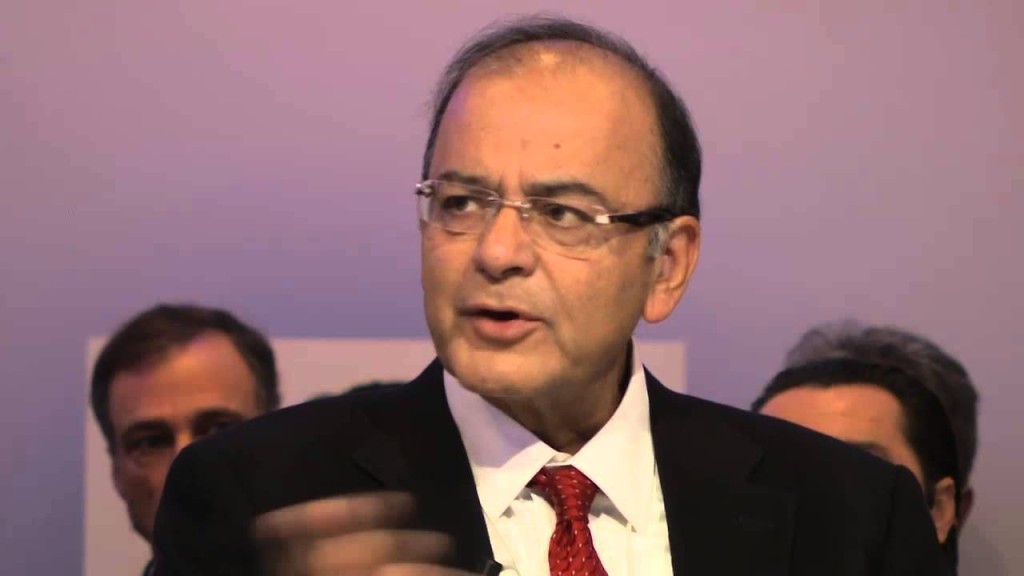It is a measure of the intellectual influence, rather hegemony, of the Left that nobody, certainly not Finance Minister Arun Jaitley, is willing to have a look at the only viable solution to the policy logjam—privatization. Even the myriad experts, both economists as well as industrialists, talk just about disinvestment, which is minority stake sale in public sector undertakings (PSUs), and not privatization, which is denationalization.
Jaitley lacks courage to even use the P-word in his Budget speech. It needs to be mentioned in this context that Yashwant Sinha, for all his faults, at least had the guts to mention ‘privatization’ in his 1999 Budget speech and support it in the subsequent years. It was expected of the Narendra Modi government to not only restart the privatization programme but also expand it by bringing public sector banks under its purview. For, it was Modi who had coined the slogan of minimum government-maximum governance and mouthed the truism before becoming Prime Minister that the business of government is not business.
That was then. After taking charge in New Delhi, however, he decided to play ball with the very Establishment was supposed to—and many of us thought he would—take on. Any meaningful change is premised on privatization; it is a sine qua non for faster economic development in India.
Privatization was, and is, desirable, not only for fiscal reasons but also ideological ones. In the ultimate analysis, privatization is the rollback of the state from the economy; any government opting it as policy implicitly reposes faith in the entrepreneurial energies of its people and, concomitantly, supports the principle of limited government. Margaret Thatcher did that wholeheartedly in the UK; the Atal Bihari Vajpayee government, Arun Shourie as its spirited minister, did it in India for some time, but nobody else in our country has shown courage to privatize PSUs.
It is not that Jaitley is unaware of the benefits of privatization. Not many remember that he was the country’s first disinvestment minister; and he presided over the first strategic sale when Modern Food was sold to Hindustan Lever; Shourie succeeded him.
The benefits of privatization are many and varied. The website of the Disinvestment Department once listed them: “The primary objectives for privatizing the PSEs are… Releasing the large amount of public resources locked up in non-strategic PSEs, for redeployment in areas that are much higher on the social priority, such as, basic health, family welfare, primary education and social and essential infrastructure; stemming further outflow of these scarce public resources for sustaining the unviable non-strategic PSEs; Reducing the public debt that is threatening to assume unmanageable proportions; transferring the commercial risk, to which the taxpayers’ money locked up in the public sector is exposed.” Further, the site said, strategic sale “would expose the privatized companies to market discipline, thereby forcing them to become more efficient.”
This is not theory. The total market capitalization of PSUs is in excess of Rs 10 lakh crore. If the government announces the sale of all PSUs, and is able to convince the market about its seriousness regarding that, the capitalization would increase many times as everybody is aware of the potential of many of public sector companies. If the government staggers the sale of PSUs over, say, five years, it will be able to garner at least Rs 2 lakh crore every year.
That’s a lot of money; it will help the Finance Minister to raise income tax slabs dramatically. There won’t be any need to think about reprehensible things like taxing retirement funds. There would also a considerable amount left for infrastructure development. Privatization could be the panacea for the economy.
Of course, it would not be easy. The biggest hurdle is the Modi regime’s statist proclivity. After 21 months in office, it has become quite clear that the Prime Minister is no admirer of the concept of limited government. Secondly, various organs of the Sangh Parivar are opposed to the sale of PSUs which they, like the commies, liken with ‘selling family silver to pay the grocer’s bills.’
As Finance Minister, it is the duty of Jaitley to convince the Prime Minister and Hindutva apparatchiks that privatization is not such a bad thing. But Jaitley apparently believes that conformism is the better part of discretion.
